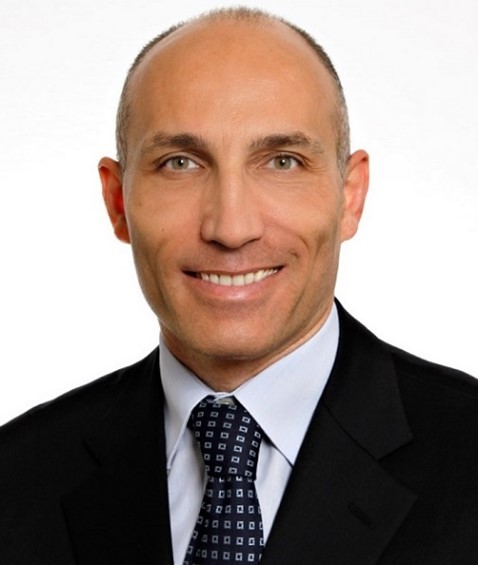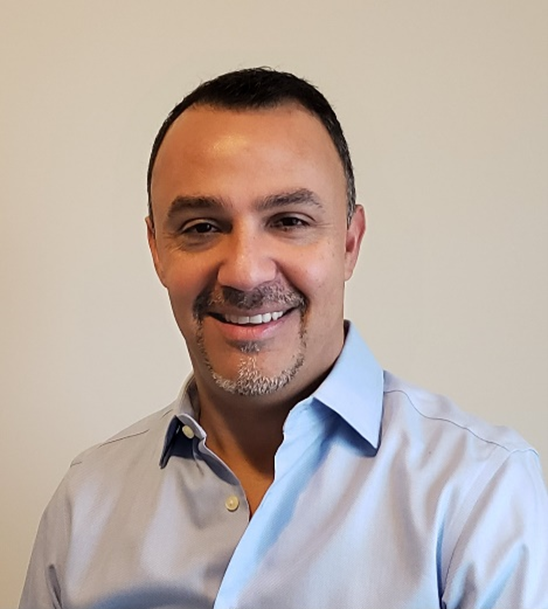Partnering for Progress: Enhancing Patient Adherence Through Autoinjector Access
Source: FUJIFILM Diosynth Biotechnologies
By Enrico Zanetti, Executive Director of Commercial Development, Drug Product and Finished Goods, Cristina Brinkmann, Drug Product and Finished Goods Business Steering Group Lead, and Francisco Gonzalez, Associate Director of Strategic Technical Marketing
In the aftermath of the massive cultural shifts triggered by the COVID-19 pandemic, the healthcare community is striving to make treatments more accessible for all patients, particularly those with chronic conditions who require ongoing treatment – cue the need for convenient modes of therapeutic administration. Though it is still vital for contract development and manufacturing organizations (CDMOs) to offer flexible delivery modalities, including vials, pre-filled syringes, and autoinjectors, the latter is taking the market by storm.
Autoinjectors are a class of medical devices designed for patients to self-administer a precise dose of medicine; they enclose cartridges or pre-filled syringes that are driven by a spring system.1 Their ease of use improves both medical adherence and the patient experience. As a result, the autoinjector market is slated to reach $1.7 billion by 2028 and projected to grow at a compound annual growth rate (CAGR) of 14% from 2023 to 2028.2
Amidst this exciting shift, it is crucial for drug developers to partner with device manufacturers that will make knowledgeable recommendations on what type of format to use based on the volume and viscosity of their drug, as well as experienced drug product and finished goods providers that can efficiently fill and finish their product in preparation for the patient. These partnerships are an important step toward ensuring that your therapeutic reaches patients in an accessible autoinjector format, improving the chances of a hassle-free treatment in the convenience of their home.
Improving the Patient Experience & Medical Adherence
Autoinjector delivery systems offer benefits for both patient and provider. For example, to maintain healthy blood glucose levels, diabetes patients need a daily dose of insulin or glucagon-like peptide (GLP-1).3 As demand for GLP-1 continues to grow globally – at a CAGR of 20.6% from 2020-2023 – it is a major contributor to the autoinjector boom.4 The convenience of autoinjectors for at-home, daily use is a huge win for diabetes patients and their healthcare providers.
Though autoinjectors have long been used as drug delivery devices to treat diabetes, anaphylactic shock, and autoimmune conditions, they are now expanding into oncology and metabolic disease markets. For patients, they eliminate the need to drive to and from a clinic to receive treatment, reducing travel time and costs. By gaining ownership over their treatment with autoinjectors, patients can feel independent in their long-term care and administer medicine at their convenience. Beyond that, autoinjectors offer reduced needle anxiety, improved needle safety, and dose accuracy with single-use, intuitive technology.2
Autoinjectors are also a strong option for healthcare providers looking to improve medical adherence and patient compliance. Per the World Health Organization, medical adherence refers to, “the degree to which a person’s behavior corresponds with the agreed recommendations from a healthcare provider.”5 To aid this, autoinjectors can offer Bluetooth connectivity and the ability to monitor injection dose history, which ensures that providers can assess patient usage and adherence to their guidance.6 Furthermore, their connectivity allows physicians to check in on patient well-being and recommend visits as needed. If considering whether autoinjectors could improve adherence for your therapeutic, turn to the experts for their insight.
Collaborating to Enhance Expertise and Efficiency
To help drug developers deliver their therapies to patients safely and rapidly, FUJIFILM Diosynth Biotechnologies (FDB), a global CDMO, and SHL Medical (SHL), a leading manufacturer of autoinjectors, formed a partnership that provides sponsors with access to their shared knowledge and experience. SHL offers end-to-end self-injection solutions, from design to development to manufacturing, and offers autoinjectors, pen injectors, and innovative specialty delivery systems to accommodate a range of doses and viscosities. Their device design is based on human factor engineering to improve patient accessibility. SHL provides comprehensive guidance to clients, advising them on what type of autoinjector would be best to leverage based on the indication, route of administration, and volume and viscosity of the drug. They have an exceptionally strong track record for combination product launches.
At FDB, we provide end-to-end manufacturing solutions from drug substance to drug product to finished goods to meet our clients’ dynamic needs. Our streamlined assembly, labeling, and packaging prioritizes timely delivery to clients and has the bandwidth to accommodate vials, pre-filled syringes, and autoinjectors. Thanks to our experience and understanding of the current market, both SHL and FDB recognized the benefits of forming a partnership between a device manufacturer and drug product and finished goods services provider.
First and foremost, our continued affiliation helps establish supply chain reliability in a volatile market. By working together from the early stages of a project and developing an understanding of the client’s volume needs, both SHL and FDB can prepare to accommodate, manufacture, and respond to any potential supply chain challenges. Beyond that, our locations are in close geographic proximity in both the U.S. and Europe. The integration between our companies, including a robust technology transfer of SHL’s products into FDB, helps yield an ideal result for our clients and their patients. SHL has provided guidance and technical support for FDB’s line to ensure precision manufacturing with high-end equipment and provides ongoing support and innovation recommendations. By collaborating with SHL and leveraging their expert insight into their devices, FDB has tailored our processes to assemble functional and accessible autoinjectors. Our finished goods team has the skill and experience to accommodate a full product life cycle. As a result, we’re able to fulfill a critical step in a therapeutic’s path to patient.
Identifying a Solution
Without adept knowledge, selecting the appropriate delivery device for your drug may seem daunting. By opting to work with an experienced device manufacturer and finished goods provider that have a track record of successful collaboration, you are placing your drug product in safe, capable hands en route to the patient. This strategic alignment aids you in choosing a delivery device that bolsters medical adherence and patient autonomy during treatment.
About the Authors

Enrico Zanetti joined FUJIFILM Diosynth Biotechnologies in 2022 and leads the global commercial development for the drug product and finished goods business. He has over 20 years of experience in the pharmaceutical field, mostly in Sales and Business Development for Contract Development Manufacturing Organizations (CDMOs) with a global focus. Enrico first gained experience in CDMOs active in drug delivery and medical devices covering sales responsibilities for Europe.
Prior to joining FUJIFILM Diosynth Biotechnologies, Enrico worked in the medical devices field by leading an R&D (Research & Development) team of 12 people responsible for the delivery of new generation respiratory devices. He gained experience also working with a Swiss CDMO specializing in the Fill & Finish of biologic drugs for clinical trials and commercial manufacturing. After this, he worked with a German CDMO specializing in the manufacture of Viral Vectors with its Fill & Finish operations for clinical trials and commercial manufacturing. Enrico holds a master’s degree in Agrochemical Sciences from Università degli Studi di Milano.

Cristina Brinkmann assumed the role of Business Steering Group Lead for drug product and finished goods for FUJIFILM Diosynth Biotechnologies in 2021. In this capacity, she helps guide and strategize the overall drug product and finished goods service offering to meet the evolving market demands. Cristy began her career with FUJIFILM Diosynth Biotechnologies in 2012 at the Research Triangle Park, NC site when she joined the process development team, later transitioning into program management.
Prior to joining FUJIFILM Diosynth Biotechnologies, she worked for four years in academia at Scripps Research Institute of San Diego. She then transitioned into the private sector in the R&D of Peregrine Pharmaceuticals in California and then to Xencor, until her move to North Carolina. Cristina earned her BS in Biology from University of California, Riverside.

Francisco Gonzalez, Ph.D., is Associate Director of Strategic Technical Marketing at FUJIFILM Diosynth Biotechnologies, responsible for supporting and leading marketing activities for all service offerings with focus on drug product, finished goods, and CMC/analytical services. Francisco began his career with FUJIFILM Diosynth Biotechnologies over 4 years ago, start-ing as a member of the formulation development team at the Research Triangle Park, NC site.
He has over 25 years of scientific experience, having worked in research, product and process development, product applications, validation and continuous improvement for the Venezuelan Oil Company, Procter & Gamble, Selah Genomics, Patheon-Thermo Fisher, Ethicon-Johnson & Johnson and Unchained Labs. He earned a Licentiate in Chemistry from Universidad Simón Bolívar in Venezuela and a Ph.D. in Chemistry and Biochemistry from Baylor University. He continued as a post-doctoral fellow at the University of South Carolina with emphasis in protein aggregation in Alzheimer’s disease.
About FUJIFILM Diosynth Biotechnologies
FUJIFILM Diosynth Biotechnologies (FDB), a subsidiary of FUJIFILM Corporation, is a world-leading contract development and manufacturing organization (CDMO) for the development and manufacture of biologics, advanced therapies, and vaccines. The company operates a global network with major locations in the Unites States of America, the United Kingdom and Denmark, offering end-to-end services including drug substance, drug product, and finished goods services. It is also building a new manufacturing site in Holly Springs, North Carolina, USA, scheduled to be operational in 2025.
FUJIFILM Diosynth Biotechnologies has over thirty years of experience in developing and manufacturing drug substance of recombinant proteins, monoclonal antibodies, vaccines, among other large molecules, viral products and medical countermeasures expressed in a wide array of microbial, mammalian, and host/virus systems. We have drug product filling capabilities to support both clinical and commercial demands. Our finished goods services, supported by more than 15 years of experience, can accommodate commercial products for more than 65 countries around the world. The company offers a comprehensive list of services from cell line development using its proprietary pAVEway™ microbial and Apollo™X cell line systems to process development, analytical development, clinical and FDA-approved commercial manufacturing. For more information, go to: www.fujifilmdiosynth.com.
References
- Roy, A., Geetha, R. V., Magesh, A., Vijayaraghavan, R., & Ravichandran, V. (2021). Autoinjector – A smart device for emergency cum personal therapy. Saudi pharmaceutical journal : SPJ : the official publication of the Saudi Pharmaceutical Society, 29(10), 1205–1215. https://doi.org/10.1016/j.jsps.2021.09.004
- Autoinjectors market size, share, trends and Revenue Forecast, 2028. Markets and Markets. (2023, June). https://www.marketsandmarkets.com/Market-Reports/autoinjector-market-173991724.html
- Singh, Simon. (2022). Autoinjectors Market Rising Demand, Growth, Trend, & Insights for Next 5 Years. Markets and Markets. https://www.linkedin.com/pulse/autoinjectors-market-rising-demand-growth-trend-insights-simon-singh/
- Global Glucagon-Like Peptide 1 (GLP-1) Agonist market (2024 Edition): Analysis by Type, End-Use (Type 2 Diabetes, NASH, Obesity), By Distribution Channel, By Route of Administration, By Region, By Country: Market Insights and Forecast (2020-2030). (2024, February). https://www.researchandmarkets.com/reports/5932673/global-glucagon-like-peptide-1-glp-1-agonist?utm_source=GNE&utm_medium=PressRelease&utm_code=8673tt&utm_campaign=1939843+-+Global+Glucagon-Like+Peptide+1+(GLP-1)+Agonist+(Tirzepatide%2c+Semaglutide%2c+Dulaglutide%2c+Others)+Market+Research+Report+2024+&utm_exec=chdomspi
- Jimmy, B., & Jose, J. (2011). Patient medication adherence: measures in daily practice. Oman medical journal, 26(3), 155–159. https://doi.org/10.5001/omj.2011.38
- Autoinjectors Market Size & Share Industry Trends 2035. Size & Share Industry Trends 2035. (2024, March 1). https://www.rootsanalysis.com/reports/autoinjectors-market/293.html